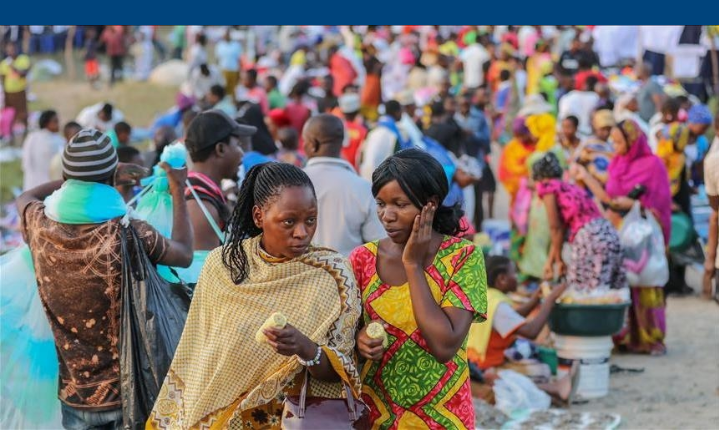
Nancy Namulindwa, 14, carries a 5-month-old baby on her back as she plays with children in a suburb of Kampala, Uganda’s capital.
Someone seeing Nancy, whose name was changed for this story to protect her identity, might think she is looking after a young brother or sister.
“This is my baby. I gave birth to a baby boy. I was impregnated by a man who raped me while coming from fetching water at a well. He fled and he is no longer in the village,” she told Anadolu Agency.
Nancy is not alone. Thousands of teenage girls have become pregnant and given birth. The situation has disturbed authorities and parents alike in the East African country.
The government said nearly 650,000 teen pregnancies were recorded between 2020 and 2021.
Rogers Kawulu, a primary school headteacher in Kampala, told Anadolu Agency that the coronavirus lockdowns which led to continuing school closures also ended up with many teenage girls getting in trouble.
“The children aren’t going to school. When they were going to school they were not getting pregnant like they are doing nowadays. They are redundant, and that’s the reason why they are easily enticed into sexual activities,” he said.
Livingstone Naitema, a retired education officer in eastern Uganda’s Luuka district, said “out of every 100 teenage girls in his village, at least 30 are pregnant.”
“The situation of teenage girls getting pregnant is terrible. Girls as young as 14 years are giving birth. It is a ‘babies having babies’ situation,” he said.
Philemon Ogwang, a father in the northern Ugandan district of Gulu, whose two daughters, ages 14 and 17, gave birth during the COVID-19 lockdown, said children are safer at school than in their homes, either in towns or villages.
“If the government continues to lock down schools, all our daughters will get pregnant. We beg our president to open up schools so that our children stop getting spoiled,’’ he told Anadolu Agency.
Lawmakers examine problem
The magnitude of the problem recently led parliament to discuss how it could be solved.
During a Dec. 1 parliamentary seating, Vice President Jessica Alupo said that since March 2020, statistics show increased cases of “defilement” and teenage pregnancies, according to a recent study from the UN population fund.
The study found that “a total of 354,736 teenage pregnancies were registered in 2020, while 295,219 teenage pregnancies were registered between January to early September 2021. This implies that on average, over 32,000 teenage pregnancies are recorded per month,” she said.
Alupo said the figures are not only high but also worrying. And the Cabinet agreed on a year-long campaign to sensitize the public to the dangers of teenage pregnancies.
“I am serving the nation in this capacity as the vice president because I finished school. Hands off girls of school-going age, let the girl children complete their school education,” said Alupo.
Bugiri constituency MP Solomon Silwany urged parliament to consider adding to its annual calendar 16 days of activism against gender-based violence and teenage pregnancies.
“There is a big challenge for young girls being given away by their parents for marriage,” said MP Dan Kimosho.
He said the situation is worsening daily during the ongoing pandemic.
“It is unfortunate that many school girls are getting pregnant in the ongoing COVID-19 lockdown,” first lady Janet Museveni recently told the media, adding that people who “defile” young women should be arrested and punished.
Stepped-up efforts
Museveni has also been at forefront of campaigning against teen marriages.
“At a recent Cabinet meeting, Prime Minister Robinah Nabanjja, first lady Janet Museveni, and myself have been tasked to lead the fight against early marriages,” Alupo said in an interview.
“Uganda has one of the youngest populations in the world, and the situation is going to be worsened by the many teenagers getting pregnant nowadays,” independent analyst David Musenze told Anadolu Agency.
Uganda’s population is 47 million, and 55% are children under 18, few of whom complete secondary education, he said.
During a recent national address, President Yoweri Museveni said underage girls that have gotten pregnant and given birth during the pandemic will not be expelled from schools when they reopen.
Uganda’s education minister also announced that schools will open in January.
Frank Mugabi, the spokesman of the Gender Labor and Social Development Ministry, told Anadolu Agency: “We have stepped up efforts to stop teenage pregnancies. We are working with various partners to create more awareness among teenagers on how to avoid pregnancies. We have engaged police to arrest the perpetrators of teenage pregnancies.’’
AANews
